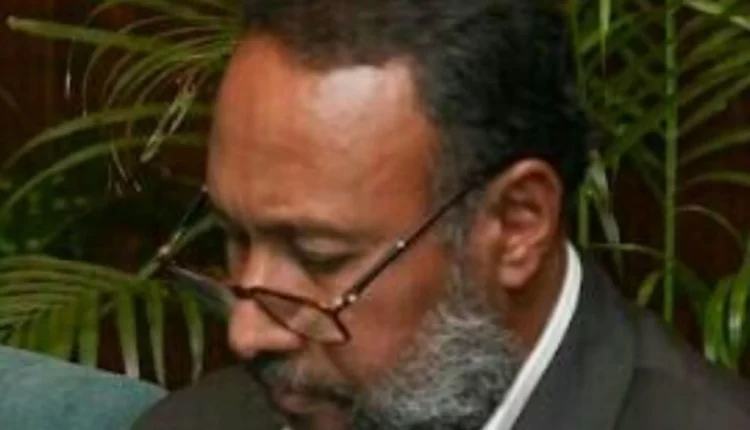Trees Do Not Migrate

By Wael Al-Kurdi
“Don’t try to carry your tree with you into exile, hoping for its shade… trees do not migrate.”
This quote, originally by the writer Ghada Al-Samman and later adopted by Duraid Lahham, reminds us: when a mother falls ill, do we replace her? Or do we remain by her side until she recovers? Just as a mother is irreplaceable, so too is the homeland.
The late Ahmad Al-Kurdi once wrote about the mother tree and how it stood for decades as millions passed it by—people of all colours, creeds, experiences, burdens and blessings. They came and went, but the tree remained—silent, steadfast, witness to human sorrow, joy, honest laughter, false smiles, deceit, and truth.
Such are the trees of the homeland—watchful of every detail, bearing silent testimony, just as our skins will one day speak of us. They endure torment and suffering; their bark etched with axe wounds, club strikes, stabs, and embedded nails—yet they utter no cry of pain, nor withhold their fruit or shade. And when these trees do fall ill, they are often hastily cut down or uprooted, replaced by others. But if people had shown patience and care, they might have seen them recover.
Along Nile Street, trees more than a hundred years old stand, still strong, still devoted to this land, still giving their all. From early on, scouts are taught to live by a motto: “Do your best.” It becomes a voice echoing in their ears whenever despair knocks. As long as there’s effort to give, give it.
But those who view the homeland and its trees as mere givers of fruit, shade, or firewood—while they themselves only take—were never truly scouts. They are the first to sever and replace their roots, leaving behind only a cruel phrase: “We’ve left you that pit.” Yet how great is that pit when it shelters a person from raining bullets and falling shells. How grave their crime, these people who kill their homeland with words. Could they not simply leave quietly—without harm, without insult?
Then there are those who later, in public forums, pass sweeping judgment on their compatriots, branding them all—or most—liars, cheats, cruel, hypocritical, and greedy. But in truth, they speak only of themselves, hoping the world is made in their image. Are all who walk this tired earth like that? Are all the toiling, patient souls, grateful for their meagre provisions, really so? Are the worshippers in mosques and homes, the ones clutching fire with their bare hands in silence and without complaint, truly like that? Are the martyrs who bled beneath the trees they embraced for their homeland truly like that? How twisted this judgement.
Did not God say:
“Thus does God set forth the example of truth and falsehood. As for the scum, it passes away as foam upon the shore; but that which benefits the people remains on the earth.”
The froth on the sea’s surface counts for nothing besides the treasures buried below. Our people, too, include both: those like the froth, and those like treasures of the earth. But we rush to despair, overwhelmed by the abundance of froth, thinking it reflects the essence of society. We fail to realise that this froth is fleeting, unstable. True calling demands we dive beneath it to reach what truly benefits the people—that is the fruitful labour of a meaningful life.
If we leave with our trees to plant them in foreign soil, we may find ourselves as alien bodies, intruders—unrecognised, unaccounted for. That new land will never be home. We will toil, but only to eat and drink, like beasts.
And I would not be mistaken in saying that God created homelands not to give to us, but to be the fields for our mission, our sacrifice, our striving. How then do we expect to be rewarded in the Hereafter if we spend our lives only receiving, never giving?
As for that froth—those who vanish across the surface of nations—they are the lost ones, the guilty. Like Uncle Pío in The Bridge of San Luis Rey by Thornton Wilder:
“He stood outside luxury hotels, whispering tales to travellers. Sometimes, all his deception amounted to was telling them a noble house had sold its silver dishes. He would then sell this rumour to the silversmith. He frequented theatres, could applaud like ten men, traded in scandals and rumours of crop yields and land prices. In his thirties, he became valuable to higher circles, dispatched by the government to remote areas to discourage hesitant rebels—until the army arrived to crush them.”
People like that are not true children of their nations. Their departure is a blessing—a departure of the scum.
Indeed, God permits the weak and helpless to migrate when they have neither power nor choice. But when the majority of a nation’s people suffer poverty, injustice, and the tyranny of a wealthy elite—then it is time for struggle and revolution:
A revolution against the tyrannical regime—when rulers murder, steal, and corrupt, they forfeit their right to rule.
A revolution that breaks the earth to bring forth green oil—agriculture, not exploitation.
A revolution against environmental ruin—replacing fossil fuels with solar and water energy.
And let us finally shelve the saying, “We blame the times, but the fault is ours…”
Instead, let us hold fast to the Prophet’s words:
“My nation is like the rain—no one knows whether its good lies in its beginning or its end.”
Shortlink: https://sudanhorizon.com/?p=5723

